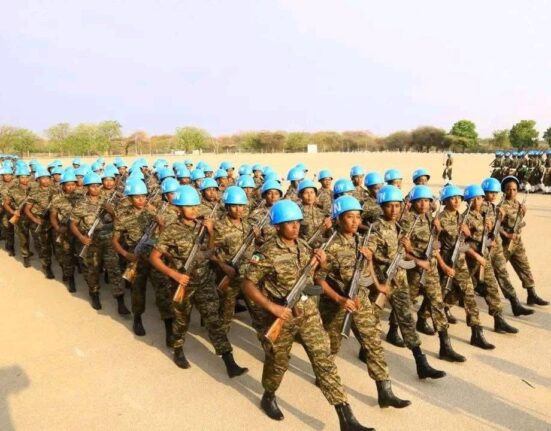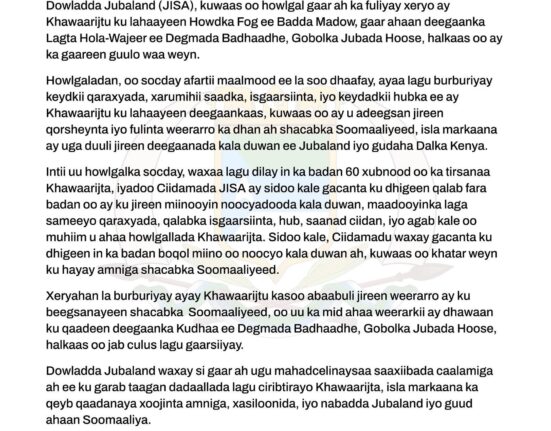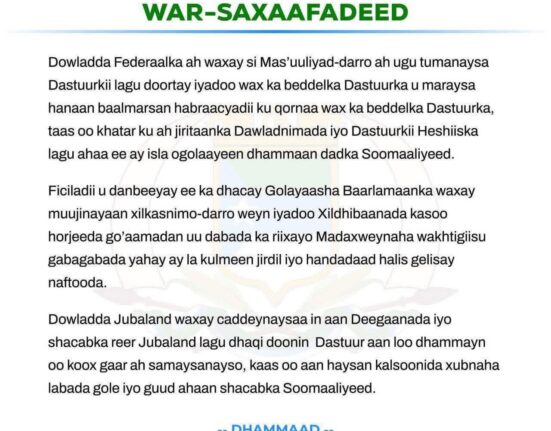Ethiopia’s pursuit of maritime access is reshaping the Horn of Africa’s geopolitical landscape, challenging traditional power dynamics, and raising questions about sovereignty, regional influence, and economic survival. Since becoming landlocked after Eritrea’s independence in 1993, Ethiopia has faced constraints on its economic potential and strategic autonomy. Its reliance on ports like Djibouti has cost billions annually, hindering development for a nation of over 126 million people.
Ethiopia has traditionally depended on the port of Assab for its maritime access. Unfortunately, the border conflict with Eritrea between 1998 and 2000 disrupted this vital connection. While international law, such as the United Nations Convention on the Law of the Sea (UNCLOS), guarantees landlocked states the right to access the sea, actualizing these rights requires the establishment of bilateral agreements and the promotion of regional cooperation.
In January 2024, Ethiopia made a significant move in its maritime strategy by signing a controversial Memorandum of Understanding (MoU) with Somaliland. The MoU proposed leasing a 20-kilometer stretch of Somaliland’s coastline for 50 years to establish a naval base, along with potential recognition of Somaliland’s independence. This move was seen as a way for Ethiopia to gain direct access to the Gulf of Aden and the Red Sea, bypassing Djibouti. However, it sparked a regional crisis, with the Somali federal government in Mogadishu condemning the agreement as a violation of its sovereignty, leading to international outcry.
The controversy led to diplomatic responses across the Horn of Africa. The US, EU, African Union and IGAD supported Somalia’s territorial integrity, further isolating Ethiopia diplomatically. Mediation efforts resulted in the Ankara Declaration in late 2024, where Ethiopia and Somalia committed to finding a solution that respects Somali sovereignty, though the status of the Somaliland MoU remains uncertain. This crisis has reshaped regional alliances and heightened strategic competition.
Somalia has ramped up its diplomatic efforts by strengthening ties with Egypt and Turkey. In early 2025, with the help of Turkish mediation, Somalia restored full diplomatic relations with Ethiopia. Egypt and Ethiopia are actively supporting Somalia’s stabilization efforts, raising concerns that Somalia could become a battleground for their competing interests. President Hassan Sheikh Mohamud has reaffirmed Somalia’s commitment to sovereignty and stressed the need to prevent proxy conflicts on its soil amidst rising regional tensions.
Egypt sees Ethiopia’s maritime aspiration as both a threat and an opportunity, particularly in light of the ongoing disputes over the Grand Ethiopian Renaissance Dam (GERD). Cairo has shown support for Somalia, Eritrea and strengthened ties with Djibouti. Egypt has deployed troops in Somalia, potentially leading to conflict in regions where Ethiopian influence is strong.
Furthermore, Egypt and Djibouti have signed agreements to establish Egyptian logistics hubs in Djibouti to enhance Red Sea security. This partnership excludes Ethiopia and emphasizes the responsibility of littoral states. They are also collaborating on energy projects, such as solar and wind power initiatives, to boost Djibouti’s energy security. However, this could lead to dependencies on Egyptian technology and the creation of a dedicated economic zone for Egyptian companies in Djibouti.
This strategic partnership aligns with Egypt’s regional strategy to secure a foothold at the Bab el-Mandeb Strait, a crucial maritime route. The implications of this alignment could potentially affect Ethiopia, which relies on Djibouti’s port for trade.
Djibouti, which hosts multiple foreign military bases, has been at odds with Ethiopia’s maritime ambitions, even though Ethiopia plays a crucial role in port traffic along the Ethio-Djibouti corridor. The economic relationship between Djibouti and Ethiopia is essential, with Djibouti relying on Ethiopian resources. Despite occasional tensions, the two countries work together to improve the efficiency of the trade corridor under the Ethio-Djibouti Corridor Authority, underscoring the delicate balance between economic cooperation and geopolitical challenges.
Egypt’s strategic maneuvers, Ethiopia’s primary reliance on Djibouti’s port as its main gateway, and Djibouti’s alignment with Egypt, Addis Ababa has been compelled to reassess its security and economic interests to adapt to the evolving regional dynamics. Moreover, the ongoing dispute over the Grand Ethiopian Renaissance Dam (GERD), inaugurated in September 2025, has raised concerns about Nile water rights and Ethiopia’s regional ambitions, escalating tensions in the region.
In response, Ethiopia is diversifying its maritime connections by exploring opportunities in the port of Berbera, Kenya’s LAPSSET corridor, and seeking guarantees from Tanzania for sea access. These efforts aim to expand Ethiopia’s maritime options, boost its diplomatic influence, and reduce its dependence on Djibouti.
This week, President Hassan Sheikh of Somalia and Somaliland President Abdirahman Mohamed Abdillahi (Irro) visited Addis Ababa for talks with Prime Minister Abiy Ahmed. The discussions focused on enhancing bilateral relations, regional cooperation, and utilizing Somaliland’s Berbera Port as a key logistics hub in the region.
While international legal frameworks support Ethiopia’s right to transit access, gaining sovereign control over coastal territory remains complex. Ethiopia’s legal and diplomatic strategies must navigate regional and international norms carefully.
Looking ahead, the future of the Horn of Africa depends on various scenarios. One possibility is a diplomatic breakthrough facilitated by Turkey, leading to an agreement that allows Ethiopia access through Somali ports, potentially involving a new understanding with both Somalia and Somaliland. On the other hand, if Somaliland continues to pursue its MoU unilaterally, it could escalate into a military conflict, involving Egypt, Somalia and Djibouti and posing a threat to regional stability. Alternatively, a prolonged stalemate may persist, with Ethiopia maintaining multiple options without making definitive commitments, leaving the region in a state of uncertainty.
Ethiopia’s maritime aspirations and the responses from neighboring countries mark a notable change in the Horn of Africa. Sovereignty, access, and influence are crucial elements in this evolving situation. The results of these complex negotiations will have lasting effects, shaping the region’s geopolitical landscape and determining whether unity or division will dominate in a highly competitive setting.
Muktar Ismail, Geopolitical analyst and former Advisor to SRS President








